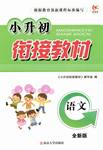题目内容
阅读下面材料,根据要求完成题。
CCTV reported that every year Chinese people throw away a lot of food, it can feed 200 million people for a year.
Do we have too much food? Of course not. According to the UN World Food Program, there were 925 million hungry people around the world in 2010. ①Six million children die ofhunger every year.
Luckily, a number of people have realized the importance of saving food. Last November, Li Hong, a waitress in a restaurant in Nanjing, lost her job because she took some leftover(剩余的) food home for her son. Many people stood by her side and criticized the waste of food.
What should we do in our daily life to waste less food? Here are some tips:
②在餐馆,不要点太多食物. Only order as much as you want to eat. If you can’t eat all the food you order, take the rest of it home.
Don’t be too picky (挑剔的) about food. Some food may not taste great, but your body needs it.
Don’t keep too much food at home, especially for vegetables and fruit.
③“Every grain on the plate comes from hard work.” It tells us everybody must save food.
小题1:将①句译成中文。
小题2:将②句译成英文。
小题3:将③句译成诗句。
小题4:Why did Li Hong lose her job?
小题5:What can we learn from the passage?
CCTV reported that every year Chinese people throw away a lot of food, it can feed 200 million people for a year.
Do we have too much food? Of course not. According to the UN World Food Program, there were 925 million hungry people around the world in 2010. ①Six million children die ofhunger every year.
Luckily, a number of people have realized the importance of saving food. Last November, Li Hong, a waitress in a restaurant in Nanjing, lost her job because she took some leftover(剩余的) food home for her son. Many people stood by her side and criticized the waste of food.
What should we do in our daily life to waste less food? Here are some tips:
②在餐馆,不要点太多食物. Only order as much as you want to eat. If you can’t eat all the food you order, take the rest of it home.
Don’t be too picky (挑剔的) about food. Some food may not taste great, but your body needs it.
Don’t keep too much food at home, especially for vegetables and fruit.
③“Every grain on the plate comes from hard work.” It tells us everybody must save food.
小题1:将①句译成中文。
小题2:将②句译成英文。
小题3:将③句译成诗句。
小题4:Why did Li Hong lose her job?
小题5:What can we learn from the passage?
小题1:每年6百万儿童死于饥饿.
小题2:Don’t order too much food in a restaurant.
小题3:谁知盘中餐,粒粒皆辛苦.
小题4:Because she took some leftover food home for her son.
小题5:We must save food.
试题分析:短文大意:本文主要讲述了我们国家浪费粮食的问题,并对此提出了几点建议。
小题1:理解关键单词可知句意为:每年6百万儿童死于饥饿.
小题2:根据句意可知,本句用祈使句型表述,故填:Don’t order too much food in a restaurant.
小题3:理解句意:可知本句意思是,盘子中的每一粒粮食都来自辛勤的劳动。故填:谁知盘中餐,粒粒皆辛苦.
小题4:细节理解题。根据Li Hong, a waitress in a restaurant in Nanjing, lost her job because she took some leftover(剩余的) food home for her son.描述,可知李龙失业是因为他把剩饭带回了家。故填:Because she took some leftover food home for her son.
小题5:主旨大意题。阅读短文可知,本文主要讲述了我们国家浪费粮食的问题,并对此提出了几点建议。故答:We must save food.

练习册系列答案
 学而优衔接教材南京大学出版社系列答案
学而优衔接教材南京大学出版社系列答案 小学课堂作业系列答案
小学课堂作业系列答案 金博士一点全通系列答案
金博士一点全通系列答案
相关题目
